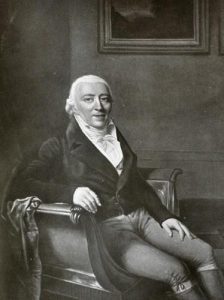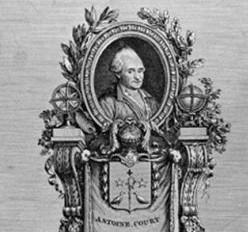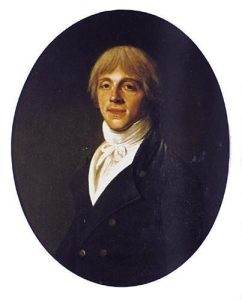A suspect during the French Revolution
Guillaume Mallet was born in Noisy in 1747, the son of Jacques, himself the son of Isaac Mallet who founded the bank that in 1782 was to be named Banque Mallet Frères & Cie.
Guillaume was very young when he joined his father’s banking establishment. He became his associate, then his successor together with his brother Jean-Jacques and a cousin. In 1791, Guillaume availed himself of the possibility granted by a bill of the Assemblée Constituante giving back their French nationality to descendants of people who had left France for religious reasons.
Although the law authorised him to pay in devalued assignats, in 1792 the Banque Mallet gave the proceeds of the sale of his town house in écus to M. Bertin, an exiled former minister of Foreign Affairs under Louis XV. As a result, Guillaume and his brother were suspected of helping the émigrés – all the more so since both were bankers of former Geneva citizenship. Accused of counter-revolutionary activities, they were arrested and jailed during the Terreur in 1794. They were set free ten days after 9 Thermidor An II. During the brothers’ imprisonment, their wives’ courage avoided the closing down of the bank, threatened as it was with bankruptcy.
The establishment of the Banque de France
When, in 1800, the Banque de France was established, Guillaume Mallet was one of the first managers whose name was approved by Bonaparte, the first Consul. He was in fact a respected banker whose advice was much sought after for the resolving of problems between fellow-bankers. Moreover, at the time of the Ancien Régime, the Banque Mallet had been a major shareholder in the former Caisse d’Escompte (abolished in 1793), the forerunner of the future Banque de France.
The statutes of the Banque de France provided not only for the discount of bills of exchange and promissory notes, but also for what was to be a novelty : the issuing of bearer orders and bills payable on demand. Guillaume Mallet played a major role as he decided on the applications submitted by those who sought the discounting of their commercial bills. After the crisis of 1805-1806 in which some managers were implied, Napoleon put him in charge of the drafting of new statutes for the Banque de France.
Of course, the position held by Guillaume Mallet at the Banque de France increased the reputation of the Banque Mallet. His descendants were to succeed him as directors of the Banque de France until the Council of directors was abolished in 1936.
Guillaume Mallet refused all political involvement, except for his seat at the Conseil Général of the Seine. In 1810 he was rewarded with the Légion d’Honneur, and Napoleon awarded him the title of hereditary baron and this will be confirmed by Louis XVIII by means of a Lettre Royale.
A member of the Paris Consistory
In 1803, Guillaume was one of the Reformed Protestants in the Seine département who paid the highest income tax. As such he became member the Consistoire (Consistory) of the Paris Reformed Church together with the twenty- four wealthiest heads of Protestant families and the pastors of the local Churches. He was a member of the Consistory from 1803 till his death in 1826. His two sons, James and Jules married two sisters, the daughters of Christophe Oberkampf.







